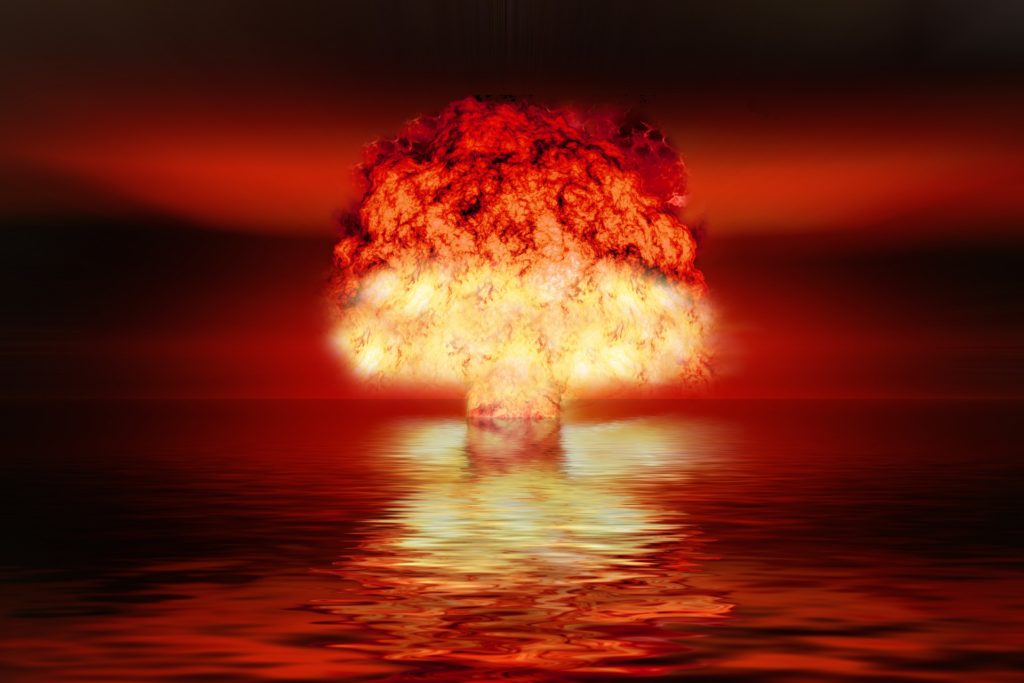
As fires burn and unrest continues all over the country, it has been difficult for me to do the usual posts about Russia. My focus was closer to home this past week and it seemed entirely appropriate. Although, as I will explain, our foreign policy is not separate from the problems that have precipitated the current upheaval we are witnessing on American streets.
For years now, I have noted stories from all over the United States about police using excessive force and killing unarmed people, usually people of color, but not always. As a white person who was greatly disturbed by these continually mounting stories, I couldn’t imagine how it made the communities most directly affected feel as so often the police officers involved in these incidents don’t even get charged with a crime. In the rare cases when they do, they are typically acquitted, even when there is video evidence of their deeds.
The killing of George Floyd, a 46 year old black man, on Memorial Day in Minneapolis showed how utterly blatant police officers have become in using unjustified deadly force. The pleas of numerous bystanders to stop their deadly force on this unarmed and handcuffed man lying face-down on the pavement not only went unheeded, but the the officer pressing his knee into the back of Floyd’s neck had a subtle look of sadistic pleasure on his face. Knowing that there is video evidence being recorded and broadcast to the world doesn’t even cause these officers to flinch. These are the actions of people who are supremely confident of their impunity to inflict grievous bodily injury to the point of death on the civilian population.
Further video evidence from nearby surveillance cameras showed that Floyd did not appear to be resisting arrest as the officers tried to claim. The cops appear to have lied about the incident, trying to absolve themselves of their crime. How many times does this happen when there isn’t any videotape of the incident?
So how is it that officers get acquitted even on the rare occasions that they are charged and tried for killing unarmed people whom are not perceived as a threat to most witnesses to or people who watch a video of a police killing? It has to do with court rulings in the past three or four decades about the standard for the use of force – a standard that seems to amount to a get-out-of-jail-free card for police officers when they invoke it. As a Vox article from 2014 on the issue summed it up: “{B]roadly, police officers are allowed to use force if they reasonably perceive a threat even if a threat is not actually present.”
As a retired police officer told me about the standard established by these rulings in the late 1980’s:
This is the beginning of the troubles. When I was a cop deadly force was only justified to prevent imminent and serious injury or death and as a LAST RESORT. This bullshit of ‘I feared for my life’ is just a license to kill and a get out of jail card.
Keep in mind that these rulings were handed down years after the U.S. government declared a war on drugs. The political class in this country apparently lacks the imagination to deal with any problem outside of declaring war on it. If drug abuse seems to be a problem, they declare war on it. In the 1990’s they declared a war on crime by implementing draconian legislation that encouraged the continual increase of the incarceration of low-income people, mostly of color, for drug possessionas well as mandatory minimums for non-violent offenses. Parenthetically speaking, the role of prosecutors at the local level – who are typically elected officials and therefore political actors – is often over-looked in terms of the amount of discretion they have in bringing charges against suspects. The same goes for the profit motive that the private prison industry has in lobbying for laws that result in more incarceration.
Getting back to the militarization aspect, If you’re going to go to war, then you have to look and act the part. Police in recent decades began donning military-style clothing, carrying assault weapons and rolling through American streets in armored vehicles that look like they belong in a combat zone. The federal government has established programs to provide surplus military weapons and material to our domestic police forces. As Matt Purple said in a recent article for The American Conservative:
At issue is the Pentagon’s so-called 1033 program, which allows police to obtain military surplus equipment from the Defense Department. Among the gear that’s been transferred over the years are grenade launchers, armored troop carriers, M16 rifles, and helicopters. And while it’s difficult to find data on the Minneapolis PD specifically, the Star Tribune reported six years ago that police in Minnesota had received about $25 million in defense hardware. (It’s worth pointing out that not all of the military-grade equipment used by law enforcement comes from the Pentagon—some of it is privately purchased by the departments themselves.)
The result has been the creeping militarization of our police. This trend made national headlines in 2014 after cops in Ferguson, Missouri, used armored vehicles to suppress riots sparked by the death of Michael Brown. That next year, President Obama signed an executive order that stopped the Pentagon from transferring some hardware to police departments. This forced Ferguson to send back, among other things, two Humvee armored trucks.
Alas, President Trump reversed Obama’s order in 2017, allowing Pentagon equipment to proliferate once again.
Journalist Rania Kkalek discusses the evolution of the militarization of our police forces more in the video below:
Here’s why US cops look like soldiers, and how it all went wrong in the first place @RaniaKhalek @inthenowpic.twitter.com/Vi044aGRRi
— The Link ? (@thelink2020_) May 23, 2020
I had a conversation a couple of months back with a gregarious Lyft driver who was also an NRA member who taught gun safety classes and has a legal permit to carry. Of course, there were things we disagreed on but one point of common ground in our conversation was how out of control our police forces are in this country. He told me a disturbing story that reflects an all too common attitude among our domestic police officers.
One day, in a parking lot, he saw a man wielding a knife at a terrified woman with a baby stroller. He said he calmly walked up closer – but still at a safe distance – and let the man know that he was legally carrying a concealed gun and asked if there was a problem. While he had the man distracted, the woman was able to get away and call the police. In effect, he was able to “talk him down” by the time the police arrived. He never once had to even reach for his gun. When the police arrived, one of the officers asked him, “Why didn’t you shoot him? I would have shot him.”
My driver was mortified at the attitude of these officers. He was a military veteran and said that he often was very upfront with people in his gun safety classes about the idea of shooting another human being. He knew from combat what it was like to shoot someone and said that you’re never the same afterward if you’re a normal person to begin with.
The truth of the matter is – we can’t have a violent imperial culture that enables our citizens to go around the world visiting massive violence on other human beings on behalf of profits and a self-righteous missionary agenda and not expect it to boomerang back onto the home front. This is perhaps best captured in the scene last night of members of the National Guard and Minneapolis Police Department marauding through a residential neighborhood, shooting paintball canisters on law-abiding citizens’ front porches while exclaiming “Light ’em up”.
Share widely: National guard and MPD sweeping our residential street. Shooting paint canisters at us on our own front porch. Yelling “light em up” #JusticeForGeorgeFloyd #JusticeForGeorge #BlackLivesMatter pic.twitter.com/bW48imyt55
— Tanya Kerssen (@tkerssen) May 31, 2020
Recall that “light ’em up” was also the cry of the US soldiers as they rained down death and destruction upon Iraqis, including children and journalists, as captured in the Collateral Murder video.

